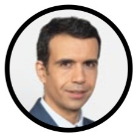[ad_1]

Sandro Mendonça
Professor, Iscte Business School (Portugal).
Supervisor, Doctorate in Healthcare Management at Southern Medical University (Guangzhou)
There were 20 of us when we met in Lisbon in the summer of 2023 for the first of a series of visits to leading healthcare institutions. The group came from a diverse set of provinces all over China and was made up of top medical doctors, public policy officials, agency managers, and business founders. They had been our PhD students and were now representing their employer organisations: Shanghai General Hospital, First Hospital of Henan University, Shenzhen Maternal and Child Health Hospital, Beijing Tiantan Hospital, and a number of companies from a variety of sectors like pharmaceuticals, biotechnology, medical equipment, accreditation specialists, training, and venture capital.
Our visit was to Champalimaud Foundation, which is both a research lab and a clinical centre. When we stepped inside, it was already clear that actually being there (physically or in person) mattered. Our students could see how the built environment privileges space and light just by the river and how the expansive architecture is adapted to the needs of both research work and patient wellness. They could also witness what innovative solutions are deployed to allow for the virtuous co-existence of different activities and usages. Together, we interacted with the Champalimaud staff, and I could see how our students were enthusiastic about the synergies between science and innovative practices. There were lively debates and really piercing questions flying around.
This whole experience illustrates a larger point: here is a case of health diplomacy. But what is this? Health diplomacy is about developing mutual recognition through healthcare expertise and infrastructure. Shared knowledge on health challenges can be enhanced through cross-border cooperation, but, in turn, it also contributes to the broader goals of international governance.
Let us stop and realise what is involved in this instance of health diplomacy. First, the group of students earned advanced degrees (at the doctoral level) from a joint programme by Iscte (University Institute of Lisbon) and SMU (Southern Medical University, Guangzhou); the roots of it can be traced to Macau in the 1990s. Second, the on-location experience was set up to create a common understanding that may underpin possible future projects. Third, Westerners have mostly (cynically) accused the Far East of “industrial espionage” but our openness attitude was grounded on the acknowledgement that frontier breakthroughs are also made in countries like China and others. Fourth, the Portuguese should be interested in liberating insights so that the Chinese learn from their models while, simultaneously, the Chinese would appreciate the advantages of diversifying sources of inspiration and deleverage themselves from the Anglo-American templates that have monopolised their attention and obsessed them all too often.
That is to say, in these times of geopolitical tension and inter-block fragmentation, there is value in initiatives that build bridges, not barriers. Health-oriented cooperation can provide ways to enhance transnational trust, an intangible asset with futures-development value in facing unforeseen crises like pandemics and other global shocks. Multilateralism needs to be remade, and it may emerge from pro-openness/pro-learning partnerships in technical fields between large and small countries, between South-South players, etc., etc.
[ad_2]
Source link
